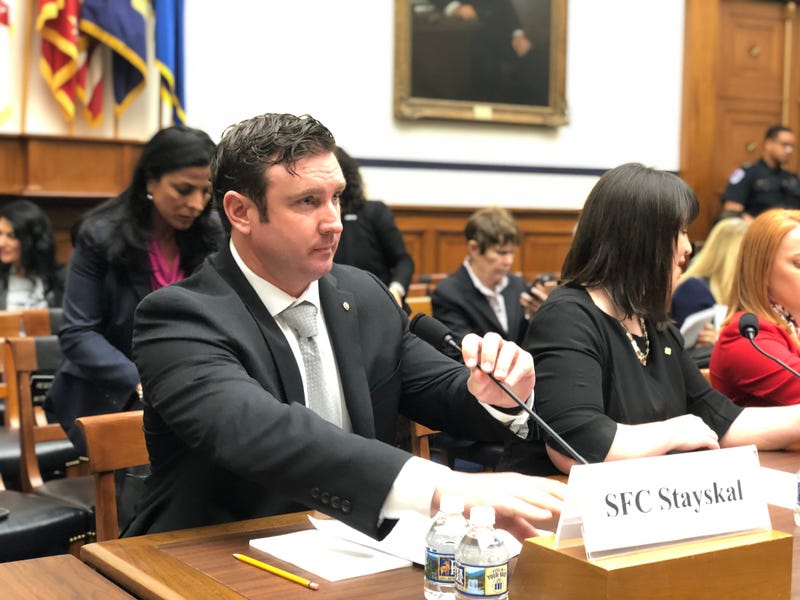
A military hospital repeatedly failed to tell Sgt. 1st Class Richard Stayskal about a tumor in his lung.
He'd later wake in a civilian doctor's office to his wife's tears and the news that he had Stage III-A lung cancer and little time left. His tumor had doubled in size from the time military doctors at Fort Bragg found it in a scan and neglected to tell him about it.
When Stayskal and his family learned they had little recourse because of the Feres Doctrine, a 70-year-old Supreme Court decision that blocks service members and families from suing the government for any injury or harm, they turned to attorney Natalie Khawam and set their sites on Congress.
It paid off. In early versions of the annual federal defense spending bill, members of the House included a measure to overturn the Feres Doctrine and allow troops and their families to sue.
That measure went through negotiations and at the end of 2019 Congress and the president passed the annual defense spending bill which included a limited path to compensation for troops and families through a new claims process at the Defense Department.
What became law is not a repeal of Feres and does not allow troops to sue but the Pentagon will get to determine claims and award amounts of money if any. It is an initial step toward relief, and Stayskal and his team are celebrating it.
"Overall, there's never been anything before and now there is something," Stayskal told Connecting Vets. "Is it better than it was? Absolutely. It's a landmark thing that has never been an option before. This is a step in the right direction. There's still plenty of time, plenty of movement to change it down the road but right now it's an amazing step for all the service members. It's something that never existed before. Now to provide that relief to families and parties who have been affected ... it's a great feeling."
While Stayskal, a husband and father of two, has gotten more positive news recently for his own health -- with "no evidence of disease right now as of Thanksgiving" he's still planning to file his own claim. And he's not ready to give up the fight to overturn Feres.
Stayskal said he plans to continue advocating for the Feres repeal and to expand the claims process to victims of workplace violence, sexual assault and other harm.
"It's bigger than me," he said. "There are so many out there before me. I'm hoping this will bring some kind of relief to them and maybe they can sit back and believe again that people do care. You can get that lost, left behind feeling quite a bit. Lots of vets will understand where I'm coming from on that. But don't be afraid to challenge the system. Sometimes that can feel impossible. If you got a true, legitimate issue and a compelling story ... you should not be afraid to stand up and go for it."
The next step is figuring out how exactly the law will be implemented, what the claims process will look like at the Defense Department and ensure it is applied accurately and fairly to the service members who have been wronged, Stayskal said.
Since the Pentagon will have full jurisdiction over the process, it remains to be seen exactly how defense leaders will implement Congress' directive.
The compromise bill includes a section that authorizes "claims by members of the uniformed services against the United States for personal injury or death caused by medical malpractice."
Specifically, the measure would direct the Secretary of Defense to "allow, settle and pay a claim against the United States for personal injury or death incident to the service of a member of the uniformed services that was caused by the medical malpractice of a Department of Defense healthcare provider."
The bill allows the Defense Department to decide the claims made against it, without a neutral third party, such as a judge in a lawsuit.
The Pentagon must also, at least once a year, submit a report to Congress on the number of processed claims and their resolutions.
The legislation does not provide guidance on how the Secretary of Defense might decide which claims would be granted and receive payouts, but does specifically say that any approved claim "is not allowed to be settled and paid under any other provision of law."
Service members could get Pentagon payouts for military medical malpractice under new Defense bill
